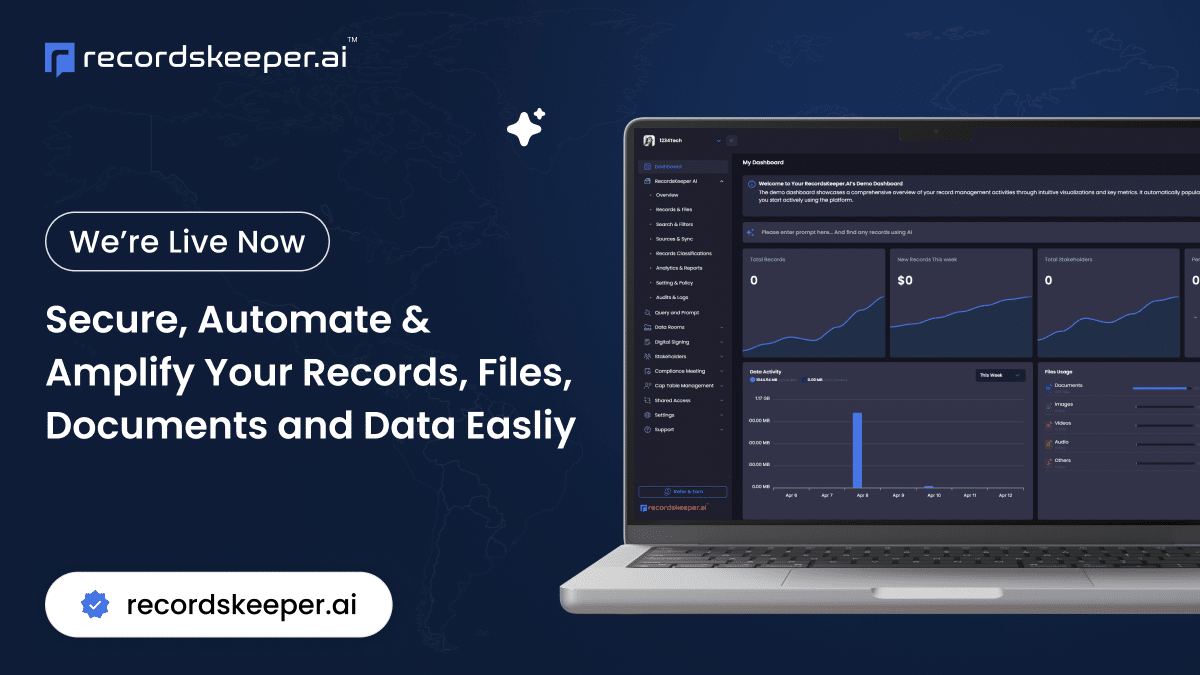The world of healthcare IT is continually evolving, with Electronic Health Records (EHR) at the forefront of this transformation. As the founder of RecordsKeeper.AI, a platform that embraces both AI and blockchain for superior record management, I’ve seen firsthand the solutions and challenges that come with ensuring compliance and security in electronic health records. Let’s delve into the essential standards for EHR compliance and the security measures necessary to protect sensitive health information.
Understanding Electronic Health Records Requirements
Electronic Health Records are not just a modern way of keeping patient information. They are integral to improving healthcare outcomes, enhancing care coordination, and ensuring that vital patient data is available anytime and anywhere. With this convenience, however, comes the responsibility of adhering to comprehensive compliance requirements.
Navigating the Standards
When discussing EHR compliance, the primary pillars to consider are privacy, security, and interoperability. Regulations are established to ensure that patient information is guarded against unauthorized access while still being accessible to authorized personnel.
HIPAA Compliance
The Health Insurance Portability and Accountability Act (HIPAA) remains central to EHR compliance in the United States. It mandates that healthcare providers and their partners adhere to rules concerning the protection of patient data, focusing on both privacy and security.
Adhering to HIPAA isn’t just about avoiding penalties—it’s about creating a trustworthy environment where patients feel safe that their information is being handled with the utmost care.
GDPR and International Standards
For international healthcare providers, the General Data Protection Regulation (GDPR) stands as a benchmark for patient data protection. It emphasizes the importance of data minimization and the patients’ right to access their information. Combining GDPR with local healthcare regulations can enhance the global compatibility of healthcare IT systems.
Ensuring Security in EHR Implementation
Security in EHR is non-negotiable. The sensitive nature of health data demands layers of protection to counter possible breaches. At RecordsKeeper.AI, we leverage advanced technology to ensure data safety in multiple ways.
Key Security Measures
How AI and Blockchain Enhance EHR Compliance
At RecordsKeeper.AI, we are pioneering the use of AI and blockchain to reshape how EHRs are managed, leading to improved compliance and security.
AI for Intelligent Record Management
AI can automate the classification and tagging of health records, making retrieval a seamless process. It offers predictive analytics to ensure that compliance requirements are continually met by keeping up-to-date with the latest regulations and assessing risk factors.
Blockchain for Immutable Records
Blockchain technology provides an immutable ledger that ensures the integrity of health records. By using blockchain, we verify that no tampering occurs without detection, thereby bolstering trust in EHR systems. This tamper-proof system aligns perfectly with compliance requirements by providing clear, unalterable audit trails.
A Path Forward for Healthcare IT
The journey towards full EHR compliance and security is ongoing, with technologies like AI and blockchain paving the way for more reliable and protected health record management systems. As compliance requirements evolve, we must remain agile and committed to adopting innovative solutions.
Join me in the pursuit of enhancing healthcare IT by focusing on secure, compliant EHR solutions that benefit medical professionals and patients alike. For further insights on healthcare IT innovations and record management, follow along for more articles where I share the latest trends and practices in the field.








